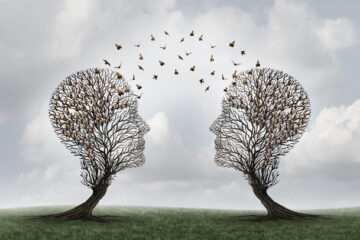Although I have only been with NCSEJ six months, some of the differences between my own experiences of growing up, living, and working in Russia and those of my new American friends and colleagues are striking. Most of my Jewish American friends and colleagues went to a Jewish school, celebrated Bar or Bat-Mitzvah and expect to take off from work on important Jewish holidays. In Russia, you are unusual and lucky if you grew up with knowledge of your Jewishness. Many, know their families were identified as Jewish in Soviet times, but have no knowledge of their rich spiritual heritage.
Others only discover they have Jewish family members after they are already young adults. Imagine never having heard about Chanukah-gelt or matzah until you are 20 years old and then discover that your grandmother or great-grandmother was Jewish! You have lived all your formative years without any access to a Jewish community, the richness of Jewish traditions and possibly above all, without the spiritual life of ritual observance.
Yet Jews in contemporary Russia have a vibrant community and are really proud of their heritage and religion. Many Jews only celebrate their Jewishness at the Passover seder or on Yom Kippur. There are many Russian jokes about the Jews who attend synagogue only once a year. But the history of Russia from Soviet times when religion was discouraged or forbidden and Jews were an often discriminated minority nationality, makes every single mitzvah by a Jew a feat of recovered identity. If you light Shabbat candles, say “Shma” before sleeping – all of these small steps are really a big deal for Russian Jews.
I think Russian Jews appreciate much more being part of a Jewish community than the American Jews I have met. Participating in a Russian Jewish community can be life-changing. It opens new vistas of possibility, new ideas, and new ways to organize living. Religion comes alive and integral to daily life. It is almost like entering a new stage of life.
Maybe for a Russian Jew the profound and important effect of choosing to participate in a religious community relates to the character of the post-Soviet space that for the last 27 years has been largely devoid of any strong moral code or clear articulation of an ideology. Perhaps, it is a reason young Russian Jews like myself look for meaning and answers to spiritual and metaphysical questions in a Jewish environment. Most of us were deprived of all of these in our childhood in a religion-free country.
To my eyes, American Jews celebrate Passover the same as Americans celebrate Thanksgiving. They plan visits with their families and there is a general spirit of anticipation and celebration. There is also lots of preparation and a week before Passover you already can hardly find “kosher for Passover” foods in supermarkets. For a large segment of Russian Jews, Passover is the last stronghold of identity with a distant past that is limited to maybe one trip to the synagogue and the purchase of some matzah. In Russian Jewish tradition the USSR compares with Egypt – we were in danger as a nation. Maybe it is a reason why the post-Soviet Jews especially honor this festival.
Beyond a rudimentary Passover celebration, people in Russia are not well-educated about Judaism. I was astonished when one Friday afternoon I was at a grocery store (not-kosher) in Washington, DC and saw a man with a beard and a kippah ask the crowd around the check-out if he could pay first because there was only a short time left before the beginning of Shabbat; people understood. I`m not sure that your boss in Russia would even consider Shabbat a reason to leave an office early on Friday, let alone that a random group of Russians would know about when Shabbat begins.
But I have hope. What I am learning at NCSEJ and from my new American friends and colleagues will be important when I return to Russia. I will continue to work in the Jewish community but I believe my perspective will be more international and more informed. Maybe, I can contribute to the next generation of Russian Jews knowing more, and more effectively spreading word of the joy and strength gained in the practice of their ancient religion.



